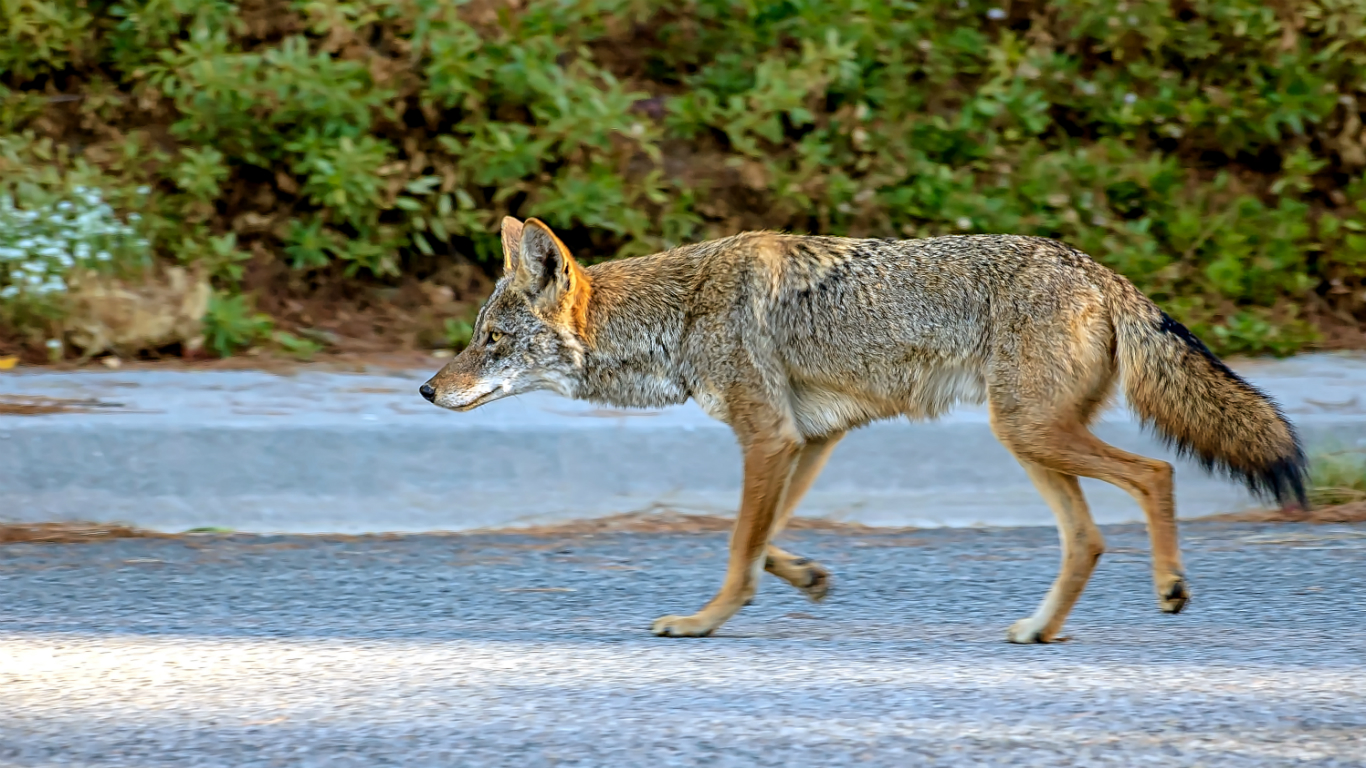
The Humane Society of the United States warns that, while coyotes typically feed on such small mammals as rabbits and mice, they also sometimes make a meal of cats or small dogs. In Southern California, it’s more than “sometimes.”
Coyotes used to be found mostly in prairie and desert areas in Mexico and central North America — every U.S. state has one or more official animals, and the coyote is South Dakota’s state mammal — but today their range has expanded to include rural, suburban, and urban areas in almost every corner of the country.
A study three years ago by Utah State University looked for the animals in 105 metropolitan areas, including New York City, and found coyotes in 96 of them.
They have long been a fact of life in Los Angeles and vicinity — there were even 16 reports of these feral canines attacking humans in 2016 — but it turns out that Southern California’s coyotes have a particular fondness for cats.
They’re in the right place: California ranks No. 1 on the list of the states with the most cats, with more than seven million of them. That population might be shrinking, at least a little, though. A new study by the National Parks Service found that cats make up fully 20% of the diet of Los Angeles area coyotes. A crowd-sourcing app called Coyote Catcher logged 135 cat deaths by coyote attack in 2018.
The best way to protect your pets from these predators, in Los Angeles or anywhere else, according to the Humane Society, is to accompany your pets when they’re outside — especially at night — and keep pet food and water, which might attract coyotes, inside.
It’s Your Money, Your Future—Own It (sponsor)
Are you ahead, or behind on retirement? For families with more than $500,000 saved for retirement, finding a financial advisor who puts your interest first can be the difference, and today it’s easier than ever. SmartAsset’s free tool matches you with up to three fiduciary financial advisors who serve your area in minutes. Each advisor has been carefully vetted and must act in your best interests. Start your search now.
If you’ve saved and built a substantial nest egg for you and your family, don’t delay; get started right here and help your retirement dreams become a retirement reality.
Thank you for reading! Have some feedback for us?
Contact the 24/7 Wall St. editorial team.


